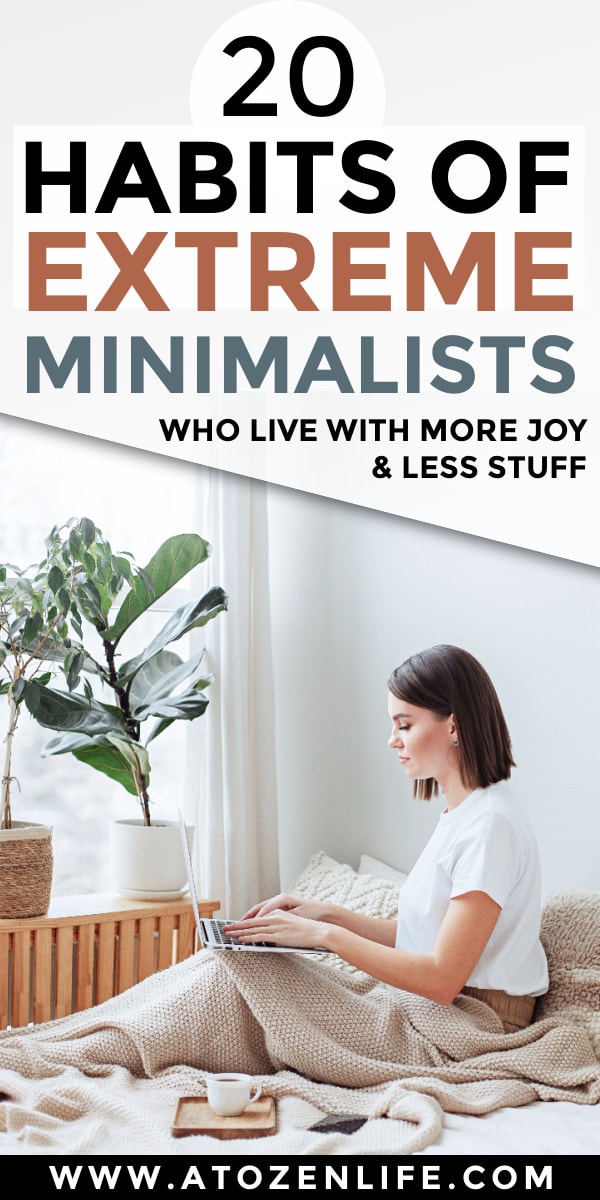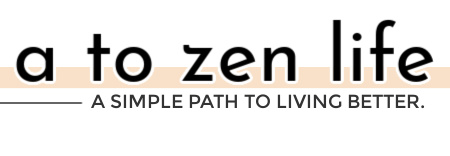What is Extreme Minimalism (and Is It Healthy or Toxic?)
This post may contain affiliate links for your convenience. That means that if you make a purchase, I will receive a small commission at no extra cost to you. Read more here.
Minimalism is more than a 21st-century buzzword – it is a movement that many have adapted to simplify and lead a more meaningful life. Still, some choose to push the limits and adopt an even more extreme minimalist lifestyle. It’s safe to say that extreme minimalism takes the philosophy of “less is more” to a whole new level.
But what is extreme minimalism, and is extreme minimalist living healthy or toxic?
As someone is often accused of being an extreme minimalist on my YouTube channel of 140,000 subscribers, and held up as an example of what happens when minimalism goes too far, I thought it might be interesting for us to explore this topic further!
While I don’t consider us to be an extreme minimalist family, I do know plenty of people who label themselves as such, both with and without children. Read on to find out more about this fascinating topic to help you decide if it might be right for you, as well as helpful tips and ideas for beginners.
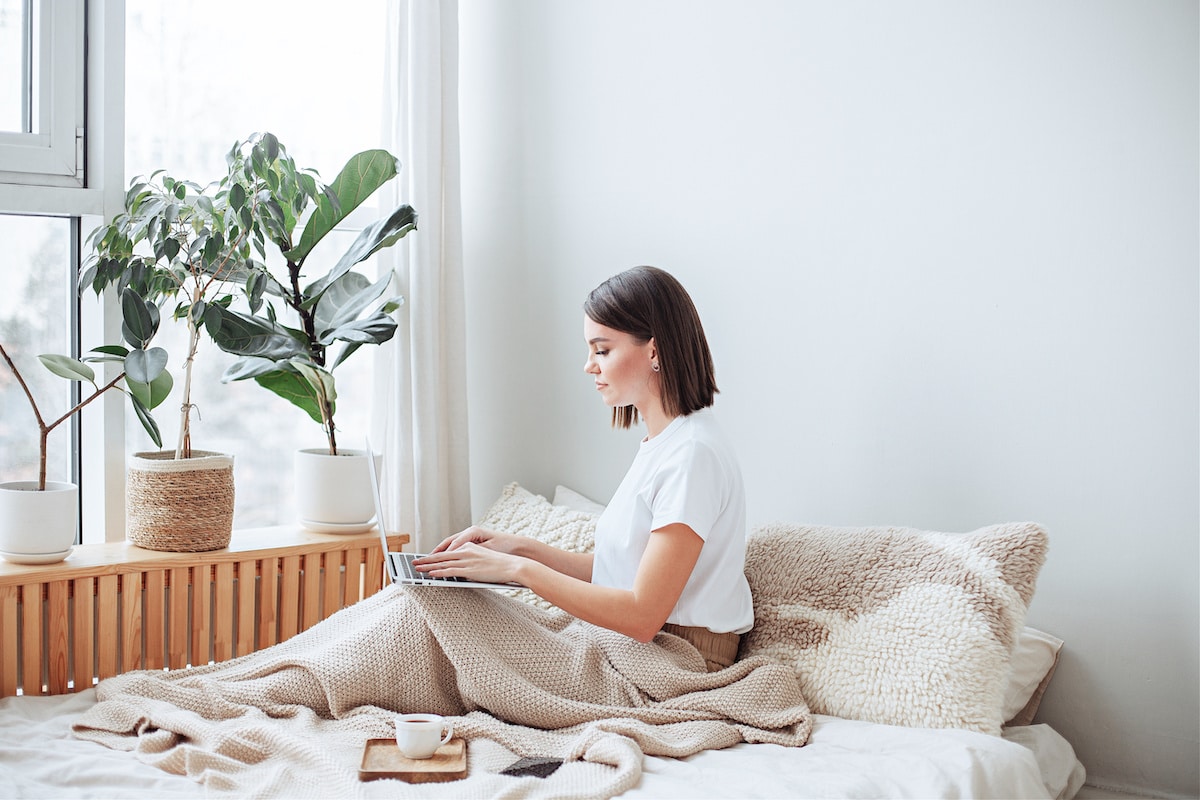
🌱 What is Extreme Minimalism?
Extreme minimalism embraces living with the bare necessities and removing excess in all aspects of life, until one is left with nothing more and nothing less than that which is essential.
Extreme minimalists seek to eliminate clutter and distractions to the point where they teeter on the brink of owning nothing. The number of items extreme minimalists own can range from 90-100 items all the way down to as low as 15 items!
Just to be clear, as far as counting your possessions, we’re talking about everything. Anything from your toothbrush to your mattress counts as a possession.
Considering that the average U.S. household has more than 300,000 items inside, an extreme minimalist home would feel quite bare in comparison!
🤔 What’s the Difference between Minimalism and Extreme Minimalism?
Extreme minimalism is more radical than the average minimalist lifestyle (insofar as a counter-cultural movement as minimalism could be described as being “normal” at all).
People who practice this ultra-minimalist lifestyle live with so few possessions that they push well beyond the boundaries of how little even the most minimalist minimalist might be comfortable owning in an effort to own as little as possible.
On the whole, minimalism is a much more accessible lifestyle. Although it encourages us to question our possessions and purchases, it does not follow the rigid guidelines that extreme minimalists follow.
🪴 Is Extreme Minimalism Healthy or Toxic?
Despite claims that extreme minimalism is minimalism that has gone too far or an unhealthy lifestyle, in truth, this type of minimalism is neither good nor bad. It is simply a tool that can be either healthy or unhealthy, good or bad, and healing or toxic depending on the person and the situation.
With a prefix like “extreme,” one glance will tell you that it’s not going to be for everyone. In fact, as you’ll find out in the extreme minimalism examples later in this post, many people quit extreme minimalism after a few years because it’s just too restrictive.
Minimalism is not about perfection; it is about doing what we are personally capable of. Pushing outside of your comfort zone can result in positive growth, but pushing ourselves too far can be detrimental.
✨ 10 Benefits of Extreme Minimalism
If you want to give extreme minimalism a try, you can reap a lot of benefits. This practice can transform your life in incredible ways.
That being said, it’s not for everyone. It’s definitely not for my family and me!
FIND OUT MORE: If you have kids or prefer a more practical approach, you can read about how we practice family minimalism after extreme decluttering 95% of our stuff and moving to Europe.
1. It Clears Your Mind
Something special about extreme minimalism is the absolute sense of stillness and clarity it can bring to your mental state. We all know that physical clutter can translate to mental clutter.
Extreme minimalism doesn’t just reduce clutter – it vaporizes it!
With only the barest essentials in your environment, your mind can be free and clear of distractions and material pollution.
2. It Benefits the Environment
Overspending on material things has huge consequences for the environment. The fast fashion industry is notorious for this, as the trends cyle through faster and in greater quantities than ever before.
You’ll find last month’s micro-trends filling thrift shops and, ultimately, landfills. Fast fashion and capitalism prey on these cycles, churning out temporary clothing of sub-par quality.
By refusing to engage in frivolous material spending, you’re helping to stop these cycles in fashion, home decor, and other non-essential goods.
3. Banishes Materialism
Materialism is an unhelpful addition to our psyches. It often lowers self-esteem, increases negative comparisons, and promotes shallow thinking. (Read more about the downsides of materialism here.)
In many ways, materialism can be a prison. It puts you in a permanent state of “want.” There is no end to wanting more unless you put an end to the cycle.
Extreme minimalism reduces want by eliminating all material possessions that aren’t absolutely essential.
“Want to know how to make yourself instantly unhappy? Compare yourself with someone else.”
Fumio Sasaki
BE INSPIRED: 120 Minimalist Quotes to Simply Live Your Best and Happiest Life
4. Helps You Focus on Your Goals
In our consumeristic society, separating goals from material wants can be diffcult. Extreme minimalism forces you to investigate the true motivations behind your goals.
Are your goals simply monetary? Are they to be able to buy more? Is that your biggest goal in life – owning more, better, or bigger?
With extreme minimalism, you begin to question your true values and beliefs and streamline your goals to align with the things that truly matter to you. Along with the mental space you create through this lifestyle, you can achieve these goals even faster!
5. Spend less, save more
The amount of money we spend on “things” is astonishing.
Focusing on owing a few quality possessions will help you spend less, save more, and help you create financial freedom. (This is one of the basic principles of financial minimalism.)
By reducing your material possessions, you’ll save what you would’ve otherwise spent on buying and replacing non-essential items and upkeep costs to own, store, and maintain those items.
RELATED POST: 7 Words to Make Intentional Shopping a Habit for Life
6. Live Lighter and Freer
Living with bare essentials makes a transient lifestyle extremely easy!
Moving is a much simpler process if all of your items can fit into a single bag! Travelling is a breeze when everything can fit into a carry-on. You don’t even have to question what to pack – you’re bringing everything (minus the kitchen sink)!
If you fear being “tied down” or start feeling claustrophobic when you begin to collect excess possessions, extreme minimalism can help you feel free.
7. Increase Productivity
Extreme minimalism can also improve productivity. By following these extreme practices, you’ll reduce the time it takes to find items; it also allows you to better manage your time and reduce the necessary tasks you need to complete on a daily basis.
Going beyond material possessions, extreme minimalism speaks in a larger sense to the way in which you live your life. It streamlines your goals, needs, and day-to-day tasks to help you accomplish more with less effort.
8. Reduce Stress
By limiting excess, you’re simplifying your life. In turn, this should help you reduce your stress. Ditch physical, mental clutter, and digital clutter by focusing on true necessities and small ways to achieve authentic joy.
9. Spend Less Time Cleaning
It can be challenging to keep up with cleaning in your busy life – and extreme minimalism can help with this. The fewer items you own, the easier it will be to clean up after yourself!
Tidying is a simple process without excess items that could clutter your space. Deep cleaning is also easier when your countertops are clear and your cupboards hold minimal products.
10. Redefine What Matters
Capitalism wants us to fixate on material possessions. When we choose to ignore that, we get to redefine what matters to us.
You get to focus on love, connection, exploration, creativity, wonder – whatever makes you tick and brings a smile to your face. These concepts can help you feel fulfilled in a way that material possessions never could.
“The first step in crafting the life you want is to get rid of everything you don’t.”
Joshua Becker
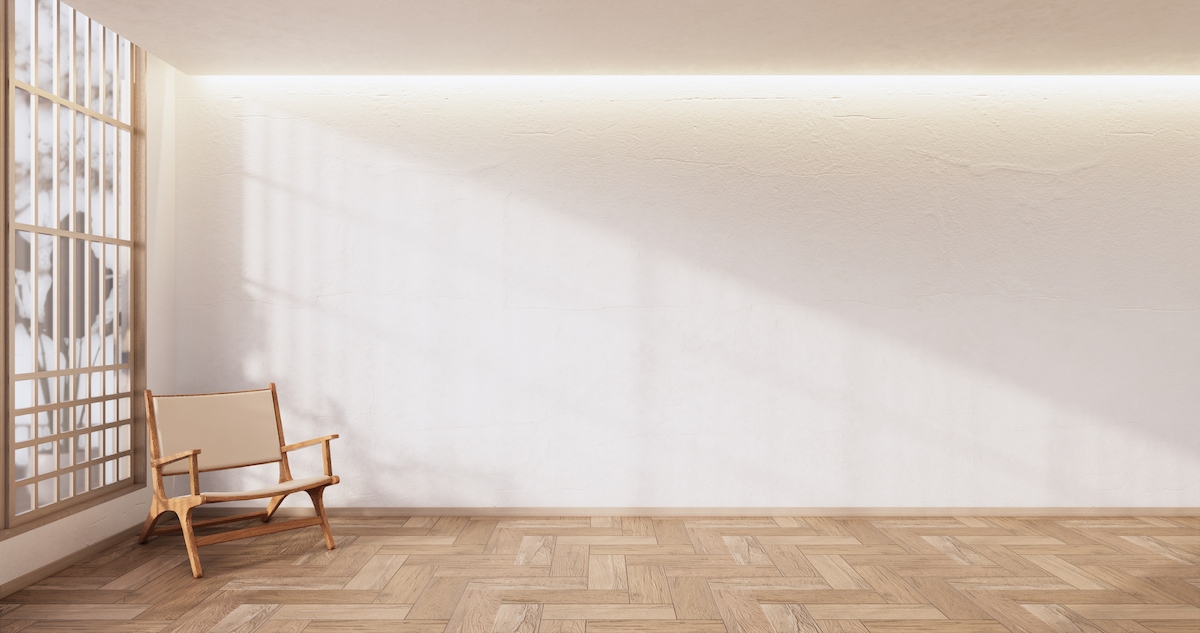
READ MORE: Find out more about the benefits of minimalism, with links to studies and research that back up all of the claims.
🧘 How to become an extreme minimalist
Here is a list of 20 extreme minimalist tips and habits for when you’ve decided that extreme minimalist living is right for you. These tips and hacks can help you declutter your home and entire life for less clutter and more clarity.
If you’re brand new to decluttering and minimalism, you might find this 5-step guide on how to declutter your entire home to be very helpful. (There’s also an incredible free 10-page decluttering workbook that’s perfect for getting you started!)
1. Wear a “Uniform”
Wearing a typical outfit or “uniform” is a great way to practice extreme minimalism. Choose your ideal outfit that promotes wearability, confidence, and comfort.
It might mean owning three sets of the same shirt, wearing only black, or creating a 10-piece capsule wardrobe in neutral colors.
The benefit of this is that you’ll never spend another moment fretting over what you’re going to wear. Waking up and always knowing exactly what you are going to wear that day can transform your life.
2. Redefine Your Kitchen
Extreme minimalists go beyond limiting excess appliances – they limit all the way down to the bare minimum.
Reduce your kitchen supplies to an all-purpose pot or pan, a single spoon and fork, and a reliable kitchen knife. Extras may be necessary based on your needs and mobility, but this is a good base to start with.
3. Ditch the Bedframe
Many extreme minimalists opt to sleep on a frameless mattress or even a sleeping hammock! Both options are more portable than a traditional setup, and they eliminate the need for a bed frame.
4. Reduce Furniture
Reduce non-essential furniture items such as coffee tables, rugs, and excess seating. However, if these things are important, you can choose to live in a pre-furnished home or rent your furniture. This way, you can use these items without having to own them.
5. Keep Multi-Use Toiletries
You’ve heard of two-in-one shampoo and conditioner, but what about one soap for all of your hygiene needs?
Extreme minimalists often use an all-in-one product for personal hygiene. This means one soap for your hair and body.
6. Let Go of Keepsakes
It is so easy to attach sentimental value to items. But at the end of the day, extreme minimalist know things are just things. Donating or giving away these things doesn’t take away your memories.
These can be really difficult for us to get rid of, but extreme minimalists find a way!
7. Go Digital
Reduce the amount of paper in your life by opting for digital solutions.
Choose to get bills, tax documents, and other mail delivered electronically. Keep important documents on a device. You can even scan your photos and get rid of any physical copies.
8. Simplify Your Phone Screen
Phones can be huge distractions. They take up time and mental space and can get just as cluttered as our physical spaces!
Simplify your phone screen by deleting excess apps and social media platforms.
9. Purge Your Jewelry
Because it’s so small, jewelry is really easy to collect over time. Limit your jewelry to simple styles and the items that you wear every day. This could be a pair of earrings that you never take off or maybe a special wristwatch.
Treat your jewelry in the same way you’d treat your extreme minimalist closet – without mercy.
10. Own One Pair of Shoes
We often have a single pair of shoes that we wear almost daily – the rest just take up space. Declutter your shoe closet by getting rid of all excess footwear and consider borrowing shoes from friends or swap groups for special events.
Depending on where you live, you may need to keep a couple of pairs for seasonal reasons!
RELATED POST: How to Make a “No Shoes in the House” Rule That Sticks
11. Borrow Your Books
Books are so fun to buy, but they take up a lot of space and are often single-use items. Save space and money by choosing to borrow your books.
Libraries have an amazing collection of physical books, e-books, and audiobooks for you to borrow! And if you need a good recommendation, ask a friend to lend you their favorite book.
12. Use Alternative Modes of Transportation
Many extreme minimalists opt for alternative modes of transportation rather than owning their own cars. Choose public transport, walking, or ride a bike to save money and reduce your environmental impact.
13. Choose an All-Purpose Electronic Device
Nowadays, it seems like there’s an electronic device for everything! And many of us own several devices that all do the same thing.
From an extreme minimalist viewpoint, it isn’t necessary to have a tablet, phone, laptop, television, etc. Instead, choose one or two devices that can suit all of your electronic needs.
14. Share within Your Community
You can use extreme minimalism to create a sense of community, so don’t be afraid to share possessions! If you have been dying to try a new smoothie recipe but don’t have a blender, ask to borrow a friend’s.
If you own a lawnmower, offer to lend it out (or even mow your neighbor’s grass). Share the love and help to make extreme minimalism a community-wide effort!
15. Live Smaller
Many minimalists opt to downsize and go for smaller living quarters such as apartments, tiny homes, or even converted vans!
The fewer things you own, the less space you need.
16. Minimize Your Folders
Delete excess digital waste. Remember to delete your emails, keep folders trimmed and organized, and keep your digital space minimal.
17. Give and Encourage Experience-Based Gifts
Experiences make the best gifts! Let family and friends know about your extreme minimalist practices and encourage experience-based gifts to reduce non-essential possessions.
18. Pick Up Zero-Waste Practices
Eliminate excess packaging, containers, and products by opting for zero-waste practices. There are many refill stores where you can get products without packaging.
19. Create Your Perfect All-Purpose Cleaner
If a cleaning product is good, it should work everywhere, right? Simplify your cleaning routine by finding a natural, all-purpose cleaner that works for all of your cleaning needs.
20. Conserve Emotional Energy
Extreme minimalism isn’t just physical; it can be emotional as well. Say goodbye to toxic relationships and seek to rid yourself of emotional attachments that no longer serve you.
Your emotional energy is a precious resource that you don’t want to waste. Save it for who and what really matters.
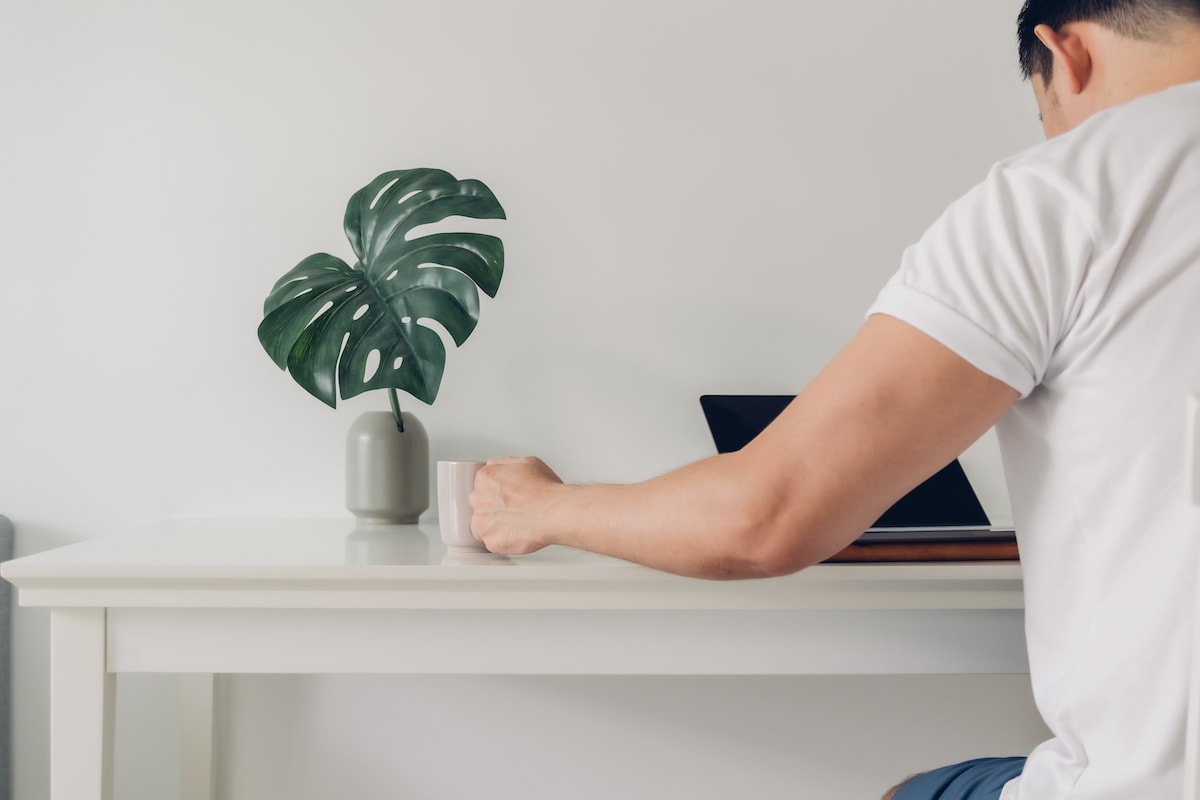
🔍 5 Examples of Extreme Minimalists
Want to know how to be extreme? Ready to learn more about people who embrace this lifestyle? Here are a few examples of minimalists who practice radical minimalist living.
You can also read this blog post with 30 of the most popular minimalism blogs to follow for a happier and simpler life.
1. Rob Greenfield
Rob Greenfield is an activist and minimalist who is all about sustainability and creating a positive impact on the environment. Everything is under his scrutiny as an extreme minimalist, and no concept is too far out.
He’s known for dumpster diving for food (and teaching others how to do the same), ditching his car, and even cutting up his driver’s license, social security card, debit cards, and ridding himself of a cell phone. Additionally, he owns a grand total of 44 possessions.
✈️ FIND OUT MORE: Read more minimal travel tips for packing light in this complete guide to traveling like a minimalist.
2. Youheum Son
This author and self-proclaimed emotional decluttering coach aims to help you transform your emotions and heal your living.
Youheum is an extreme minimalist who went viral for owning less than 90 items and living without furniture in her tiny apartment. She has since relaxed a bit, even going so far as to declutter all of her viral extreme minimalism videos from her channel, and now focuses on emotional healing coaching.
Unfortunately, you can no longer watch Youheum’s extreme minimalism videos, but you can find her new YouTube channel here.
3. Andrew Hyde
As part of his desire to travel the world, Andrew Hyde embraced an extreme form of minimalism. To pare down his items and take a trip around the world, he downsized everything he owned to just 15 items.
4. Aki from Samurai Matcha
Aki is a schoolteacher in rural Japan who loves sharing videos about his daily routines, his favorite minimalist essentials, and life as a Japanese minimalist. His cheerful manner, soothing voice, and general joie de vivre are a pleasure to behold.
Inspired by the beauty and simplicity of the Japanese tea ceremony, Aki decided to begin paring down his belongings. He found the lifestyle so freeing, that he began paring down more and more until he became an extreme minimalist.
Aki chronicles his life of extreme minimalism (as well as some exciting food and travel videos) on his YouTube channel.
5. Eco-Friend Lia
Lia is a friend of mine and a fellow resident of Germany; she is also the only extreme minimalist on this list who has a child!
Lia has many videos showing her storage methods, her extreme minimalist wardrobe living in a 4-season climate, and how much she owns as a minimalist.
Like Youheum, she also recently walked back on her extreme minimalist lifestyle to make more room for hobbies and things that she enjoys, like knitting her own sweaters. Find her here on YouTube.
🪞Is Extreme Minimalism for You?
While extreme minimalism isn’t for everyone, most of us are capable of living with less. Remember, these practices don’t have to be all or nothing. Instead, try adapting bits of the extreme minimalist lifestyle into your life and see what suits you.
Though purging your home of non-essentials can feel a little uncomfortable, it can be also be good! Change requires us to feel a bit uncomfortable sometimes.
You may surprise yourself when determining what is truly essential in your life. The things you’ve been holding on to may be holding you back.
💡 Final Thoughts on Extreme Minimalism
I find the extreme minimalism movement to be really inspiring. It encourages me to continually question my possessions, my spending, and what is truly benefitting me.
Let me know what you think about this topic. And if you’re already an extreme minimalist or know someone who is, feel free to leave your tips below!
📌 Pin these extreme minimalist tips to read again!
